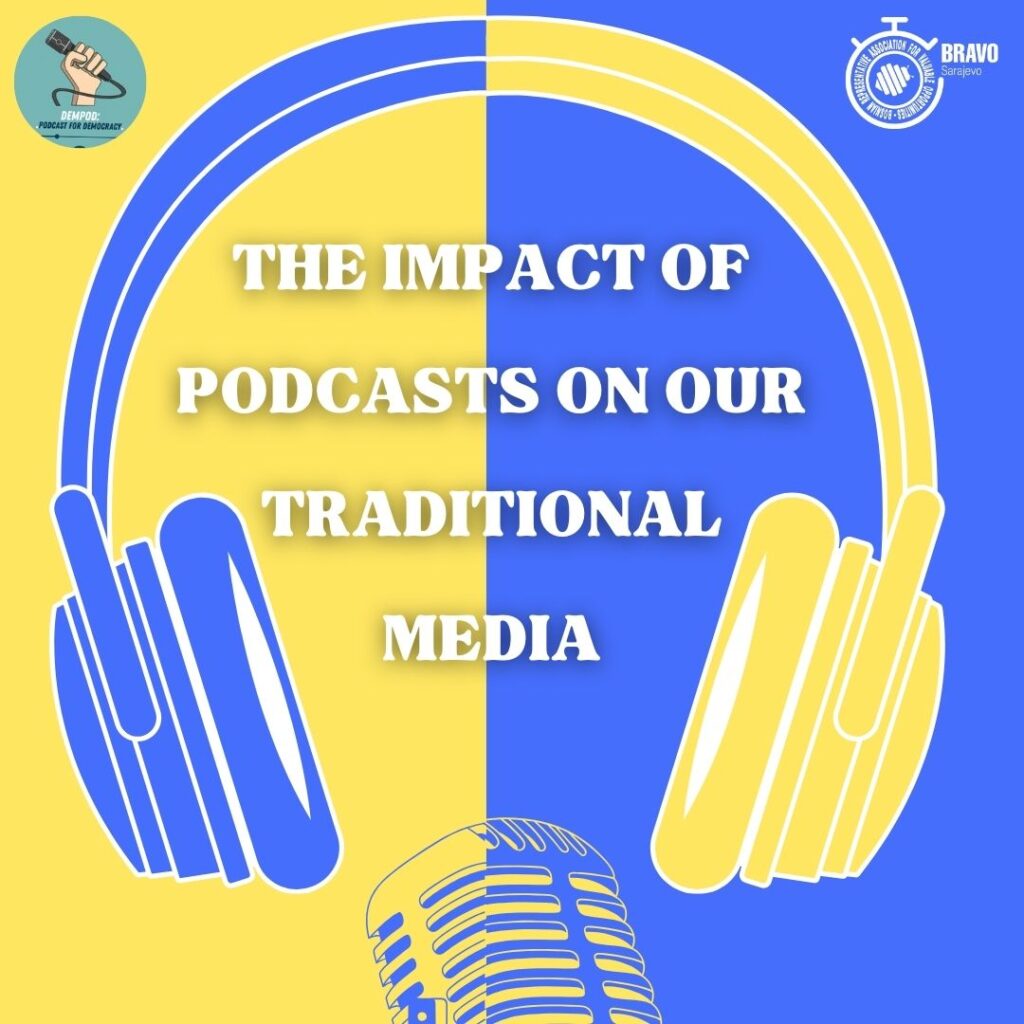
Podcasts have dramatically reshaped the media scene, challenging the dominance of traditional media outlets such as: radio, television and print. Their rise has introduced a new, flexible format that allows for deeper dives into topics and serves to the on-demand preferences of modern audiences.
Unlike traditional media, which operates on scheduled programming, podcasts offer content that listeners can access anytime and anywhere. This shift in consumption habits has led to increased media consumption and personalized listening experiences, forcing traditional media to adapt by launching their own podcasts or repurposing existing content for digital platforms. We can also see that many of our favourite digital creators and faces joined the podcast scene.
Podcasts have also democratized media creation, allowing independent voices to emerge without the significant financial barriers faced by traditional media. This has broadened the range of perspectives available to audiences and challenged the gatekeeping role historically held by large media corporations.
However, the rise of podcasts has also contributed to declining audiences for traditional radio and print media. To remain relevant, traditional media must embrace digital transformation and innovate to engage with audiences in new ways.
Podcasts have not only altered how we consume content but have also transformed the media industry, offering both challenges and opportunities for traditional outlets.
To know more about this topic, keep up with future Dempod project posts and web articles.
More about DEMPOD:
Disadvantaged young people are very frequently excluded from the media and they are not able to make their voice heard. This influences significantly their civic engagement and democratic participation. On the other hand, podcasts and vidcasts are a means of communication and expression that is becoming increasingly popular, it is low-cost to create and easy to be promoted.
Podcasts have not been used until now in youth work as a means to increase the democratic participation of young people. The proposed project is aiming to achieve this goal by providing young people with the capacities and skills to create their own podcasts, by escorting them through the whole process of podcast and vid-cast creation; from looking to get inspired and creative in order to conceive the ideas and thematics of the podcasts, to actually recording, editing, and promoting their podcast among their peers. This will be achieved also through the empowerment of youth workers and the development of their skills so that they can assist the disadvantaged young people in the process and the development of the skills of the young people themselves top increase their democratic participation.
The project is first going to develop a methodology and training materials on how podcasts can be used as tool for civic engagement and then it is going to organize training seminars for youth workers and young people (both online in synchronous (webinar) form, and asynchronous (e-learning materials) form. The young people trained are going to create podcasts and vidcasts both in their national language and in English through international cooperation.
A large-scale international festival is going to be organized in order to mainstream podcast creation as a means of democratic participation for the whole Europe.
